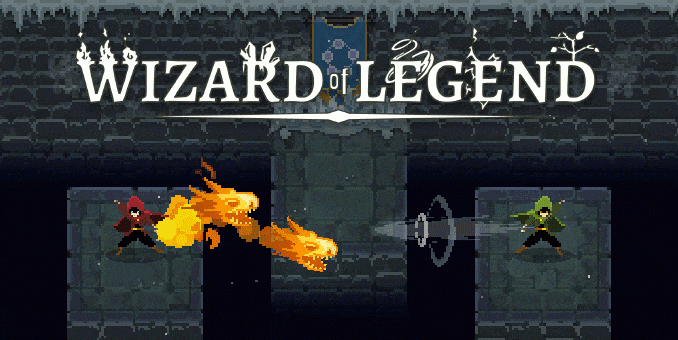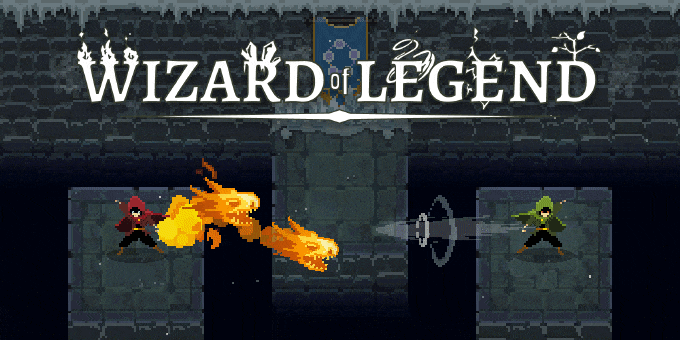
Made with Unity, Coded on Surface – The Story of Contingent 99

Over the next few months, we will feature game creators who are making games using the Unity game development platform. We’ve partnered with the Made with Unity program to showcase some of the amazing, talented game developers out there and how they use Surface to make their games come to life.
At Surface, we believe that people’s ideas are their most valuable asset. We strive to make products that break new ground and let people work in ways not previously possible. Whether it’s Surface Studio, Surface Book or Surface Pro 4, we feel that Surface brings a unique value proposition to game creators by combining the amazing performance of a full PC with the versatility of professional digital inking into a single, meticulously crafted device. For Bundy and Dahoon, who need to code and design artwork while moving from home to their co-located office space to events, the uncompromising mobility of the Surface Pro 4 was what made it their device of choice to make Wizard of Legend come to life. This is the story of Contingent99.

Galileo: Why don’t you begin by telling us a little about yourselves and how you know each other?
Bundy: Hi, I’m Bundy Kim and I’m a programmer and the artist for Contingent99.
Dahoon: Hi, I’m Dahoon Lee and I’m a programmer at Contingent99.
Bundy: Contingent99 is made up of the two of us, Bundy and Dahoon. We’re two high school friends that have probably played an irresponsible amount of games together over the years. We both have engineering backgrounds and hold degrees in Computer Science, and though we’ve done a lot of coding related work in the past, this is our first journey into game development. As it’s just the two of us on the team, we both wear a ton of different hats, filling in wherever necessary. But on a day to day basis, Bundy usually draws the artwork while Dahoon designs the game concepts. Once we discuss the design and come to an agreement, we both work to implement it into the game.
Galileo: How was Contigent99 formed?
Bundy: Dahoon was finishing up his Computer Science degree and Bundy had just quit his job at a local internet startup. The timing just happened to match up where we were looking for something new to pursue. Both of us dreamed of creating a game when we were younger and we figured if we don’t do it now, it might never happen when we’re older.

Galileo: How did the idea for Wizard of Legend come about?
Bundy: Although we had made the decision to get into game development, we weren’t sure where to start. After some discussion, we decided to try working in Unity and spent a couple of months prototyping game ideas and concepts in order to get a feel for what we’d like to make. At the beginning of each week, we met up to choose a theme or genre that we were interested in exploring. We then individually worked on a very rough prototype of a game that revolved around the central theme and reviewed the games at the end of the week. A few prototypes and many Unity tutorials later, we landed on an action adventure game that evolved over time into Wizard of Legend.
Galileo: What’s your work setup like?
Bundy: As we’re just a small two-person indie team, we don’t require much other than a couple of desks and a quiet place to work. As such, we’re currently working out of a co-working space in Los Angeles. We mainly work off a Surface Pro 4 or a laptop connected to a second monitor. Also, as Wizard of Legend is best played with a gamepad, we play test the game with both Xbox 360 and Xbox One controllers. On a day to day basis, we use Unity, Photoshop, and our text editors of choice. We occasionally use Fraps and Premiere for capturing or editing footage of the game.

Galileo: So why did you, Bundy, choose a Surface Pro 4 as your main device?
Bundy: My old laptop was having some difficulty running Unity and I was in the market for a new lightweight portable device. I remembered the multiple write-ups that Gabe from Penny Arcade posted of the Surface Pro 3 and the Surface Book praising the devices. As I’d been drawing all of the artwork for Wizard of Legend, it seemed like the Surface would be perfect both for creating artwork as well as for coding. It was also clear from his follow up posts that the team at Microsoft was very dedicated to supporting the Surface line and they took a lot of his feedback to heart, implemented multiple improvements and fixes over time. They even invited him over to the Microsoft offices to discuss ways to improve the experience.
As a result, I ended up picking up the Surface Pro 4 and working with the device has been a great experience. Getting our game up and running in Unity and working in Photoshop went smoothly. The stylus is great for getting artwork done in Photoshop, even if we’re doing pixel art. The device is also portable enough so that I don’t mind carrying it to the office every day.
Galileo: And why did you choose Unity?
Bundy: We looked at a variety of game engines and Unity seemed to offer the best 2D support while maintaining very good cross platform compatibility. After using the Unity engine during our prototyping period, we didn’t see any reason to switch over to another engine as it had all the features we were looking for. We started development of Wizard of Legend on Unity 4.x and since then with the release of Unity 5, we’ve seen a lot of improvements and are excited about the new features they plan to release in the future.
Galileo: How and why did you get involved in the Made with Unity program?
Bundy: Being game developers who use Unity every day, we saw the opportunity to be part of the Made with Unity program on their social media channels and jumped on the chance. We rarely get a chance to show off our game to the public and get live feedback, so we felt it would be really good experience.
I want to thank Bundy and Dahoon for taking the time to share with us their story. Make sure to check out their game Wizard of Legend and wish them success on their venture. If you happen to be creating a game on your Surface, give us a shout on Twitter via @Surface. Lastly, check out the Made with Unity program and all the awesome games being shown off over there.
Source: Made with Unity, Coded on Surface – The Story of Contingent 99






Leave a Reply